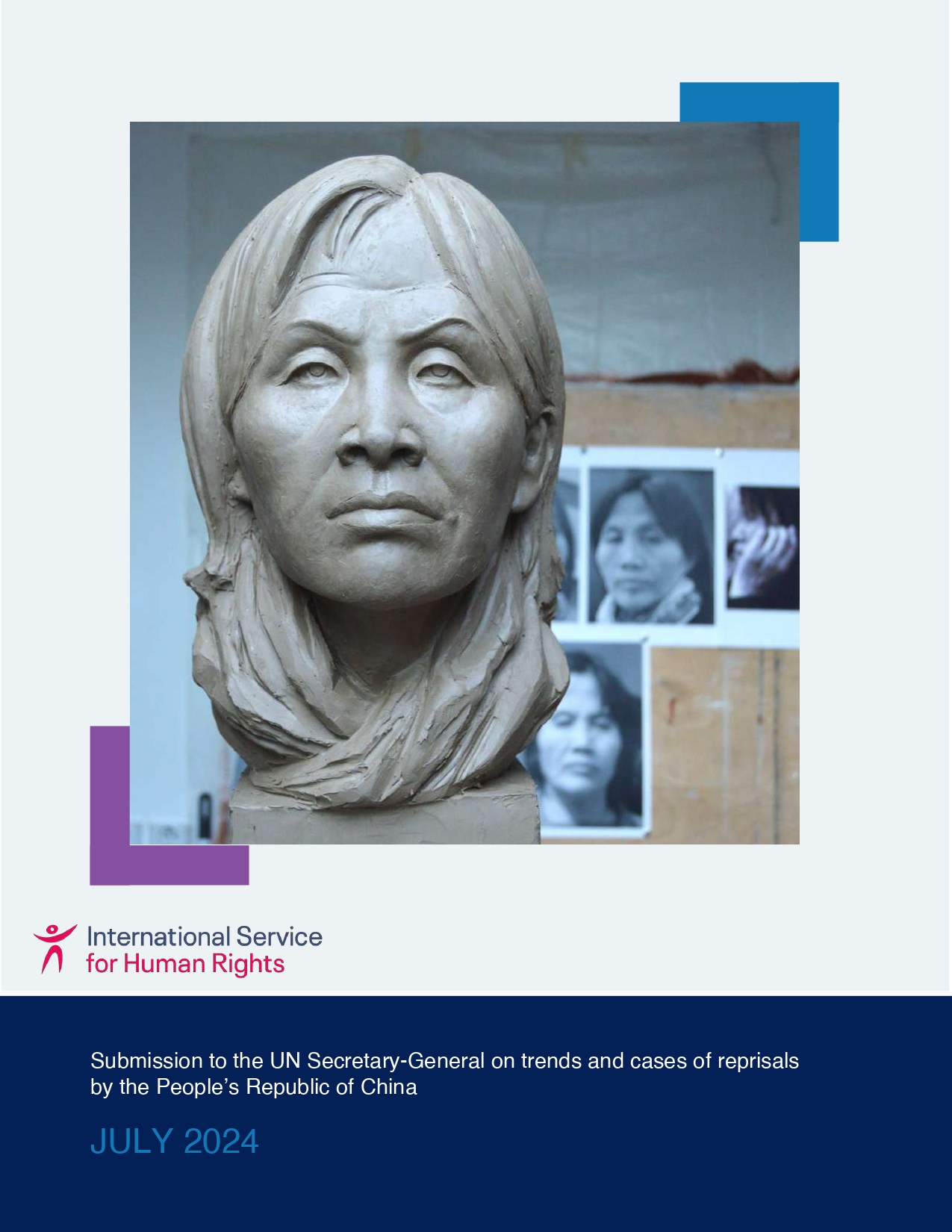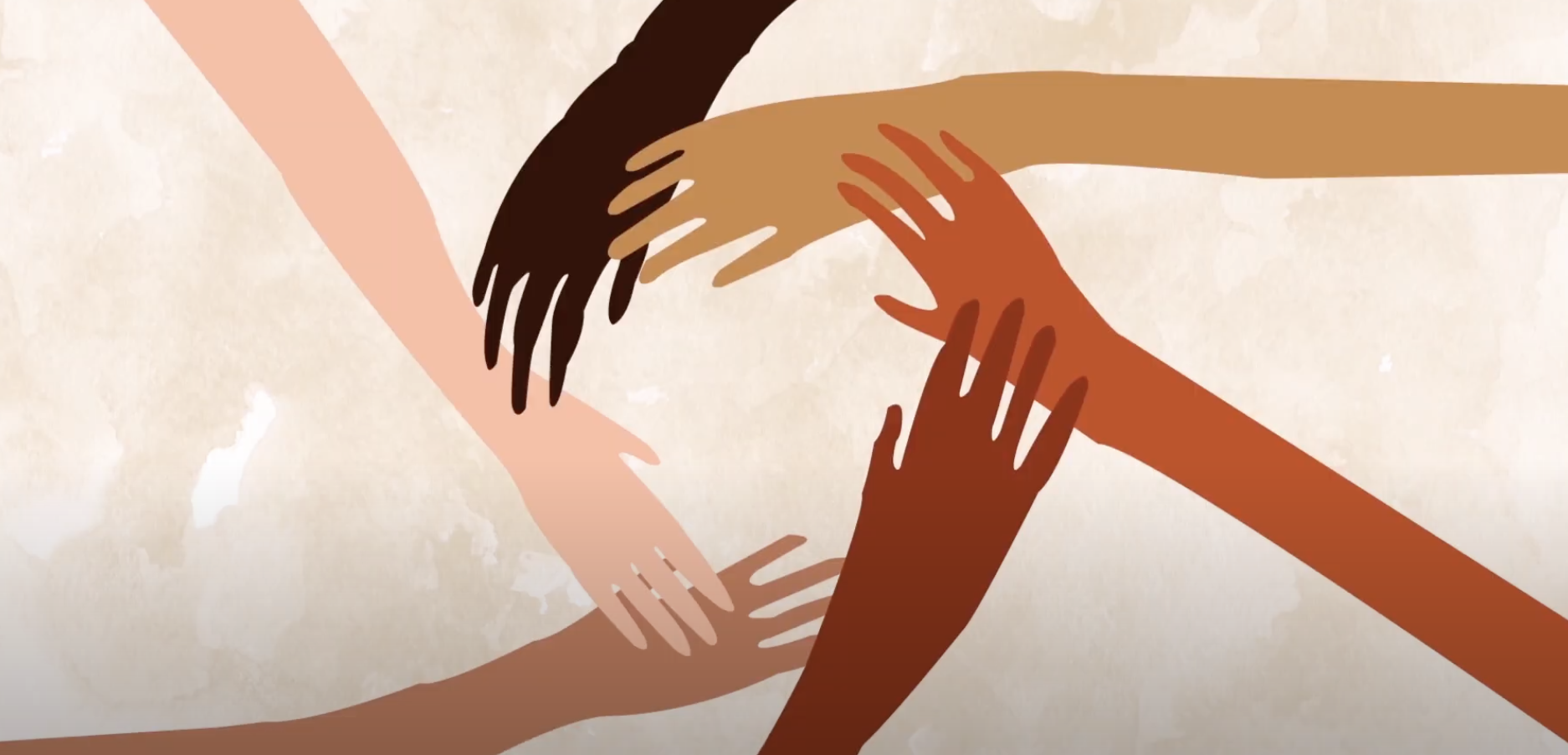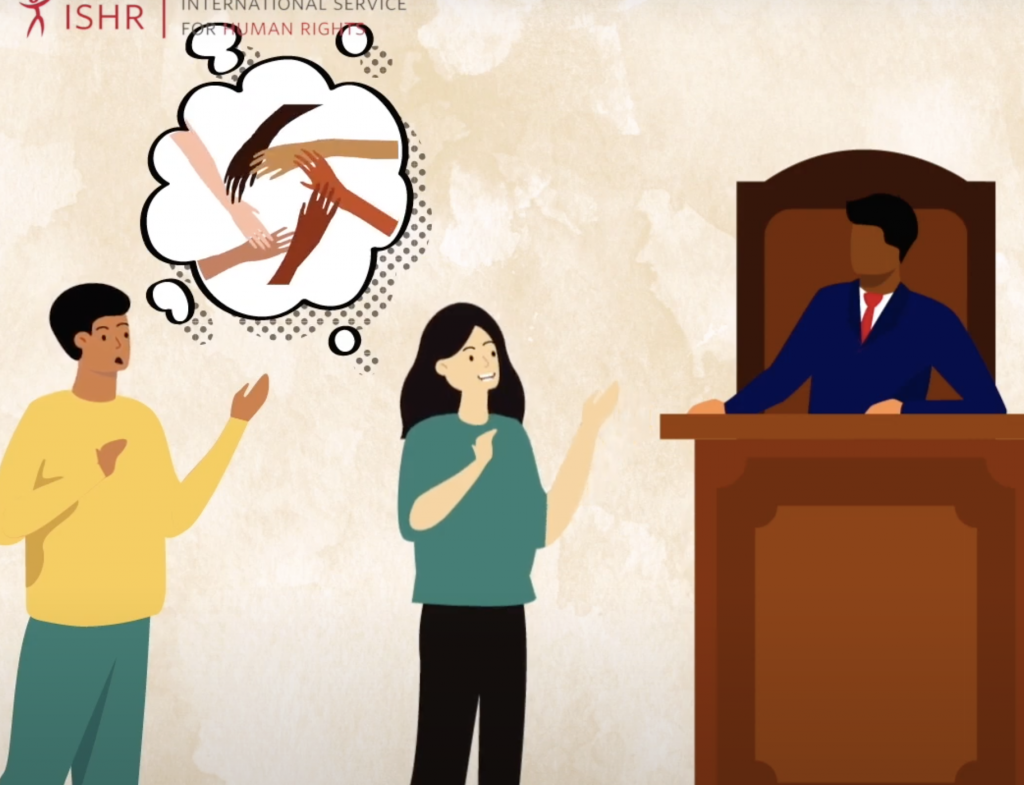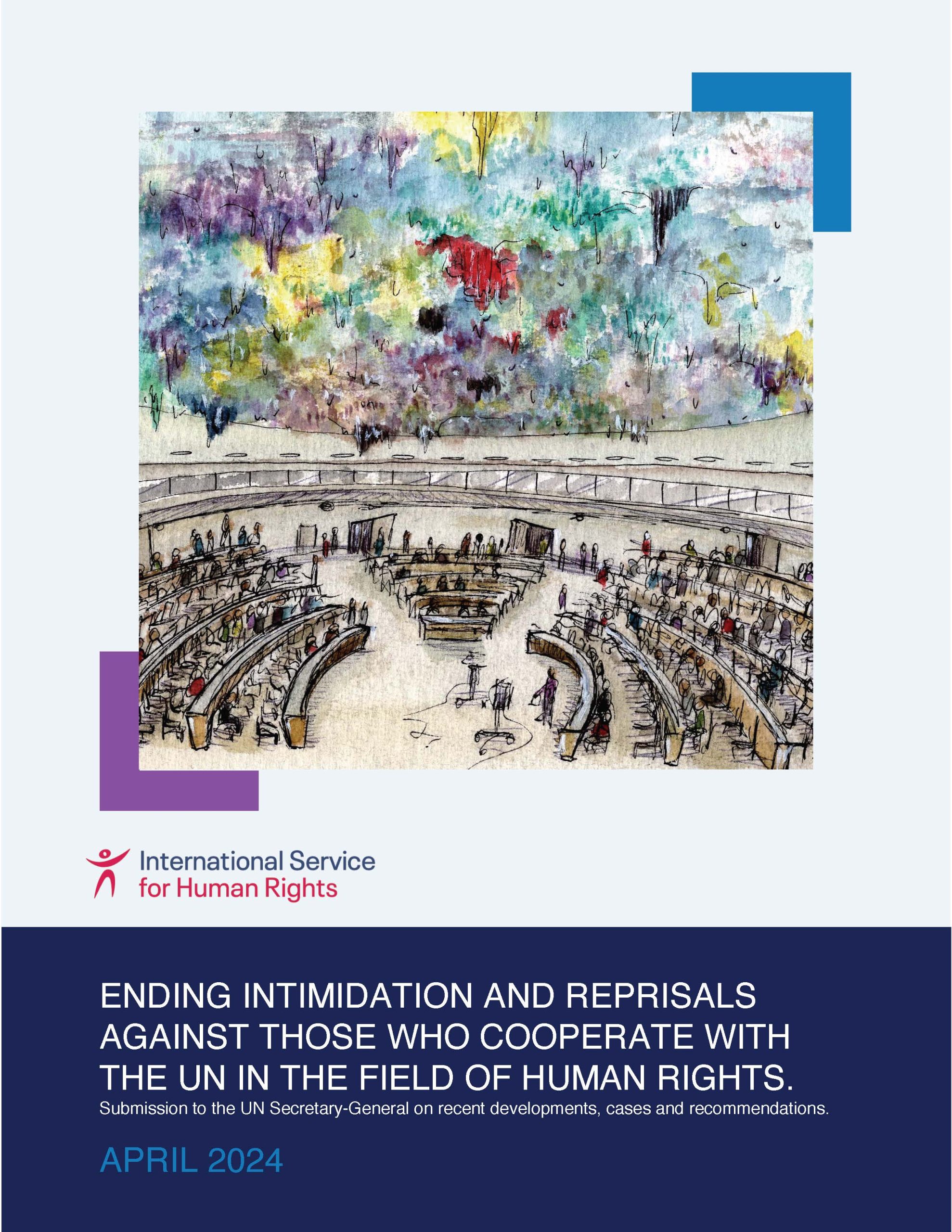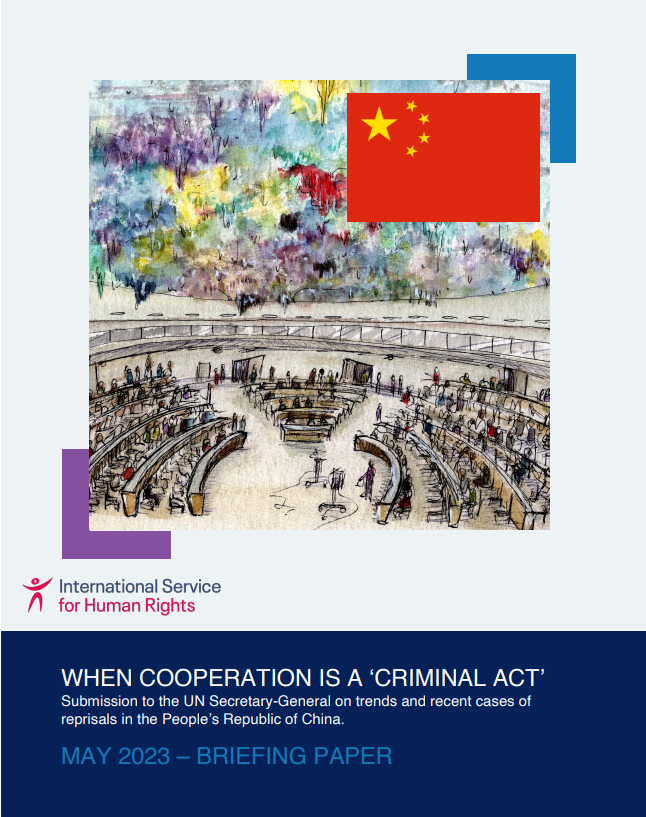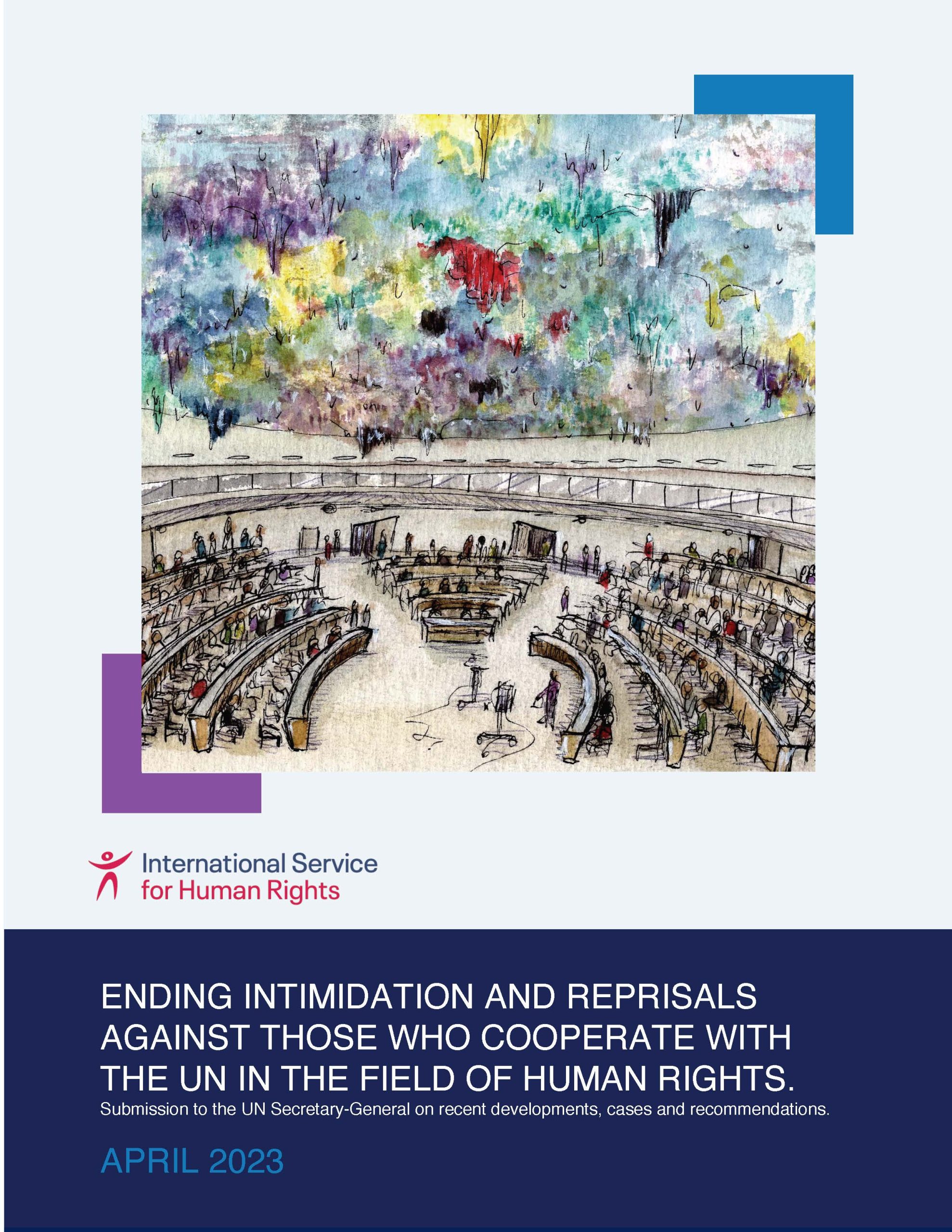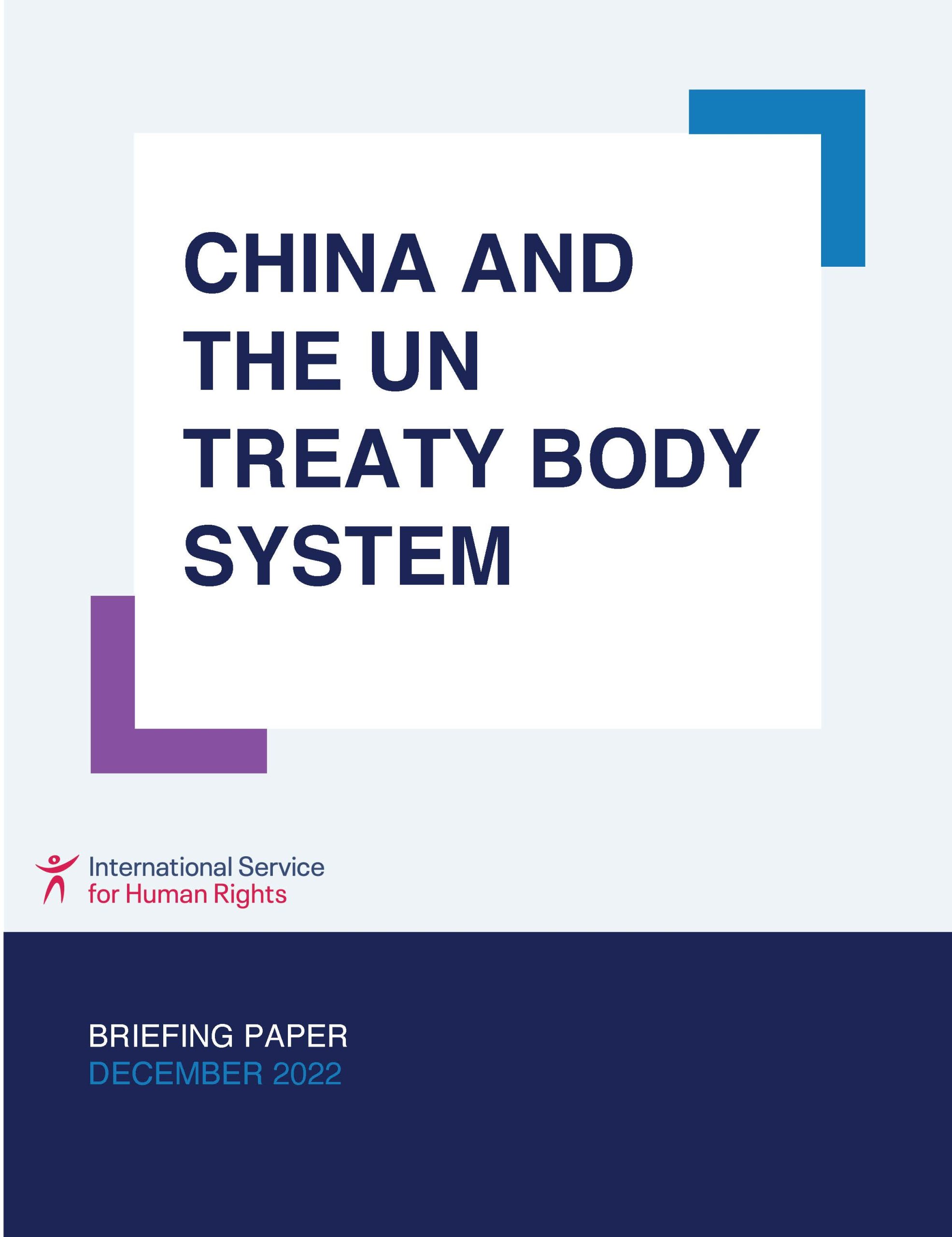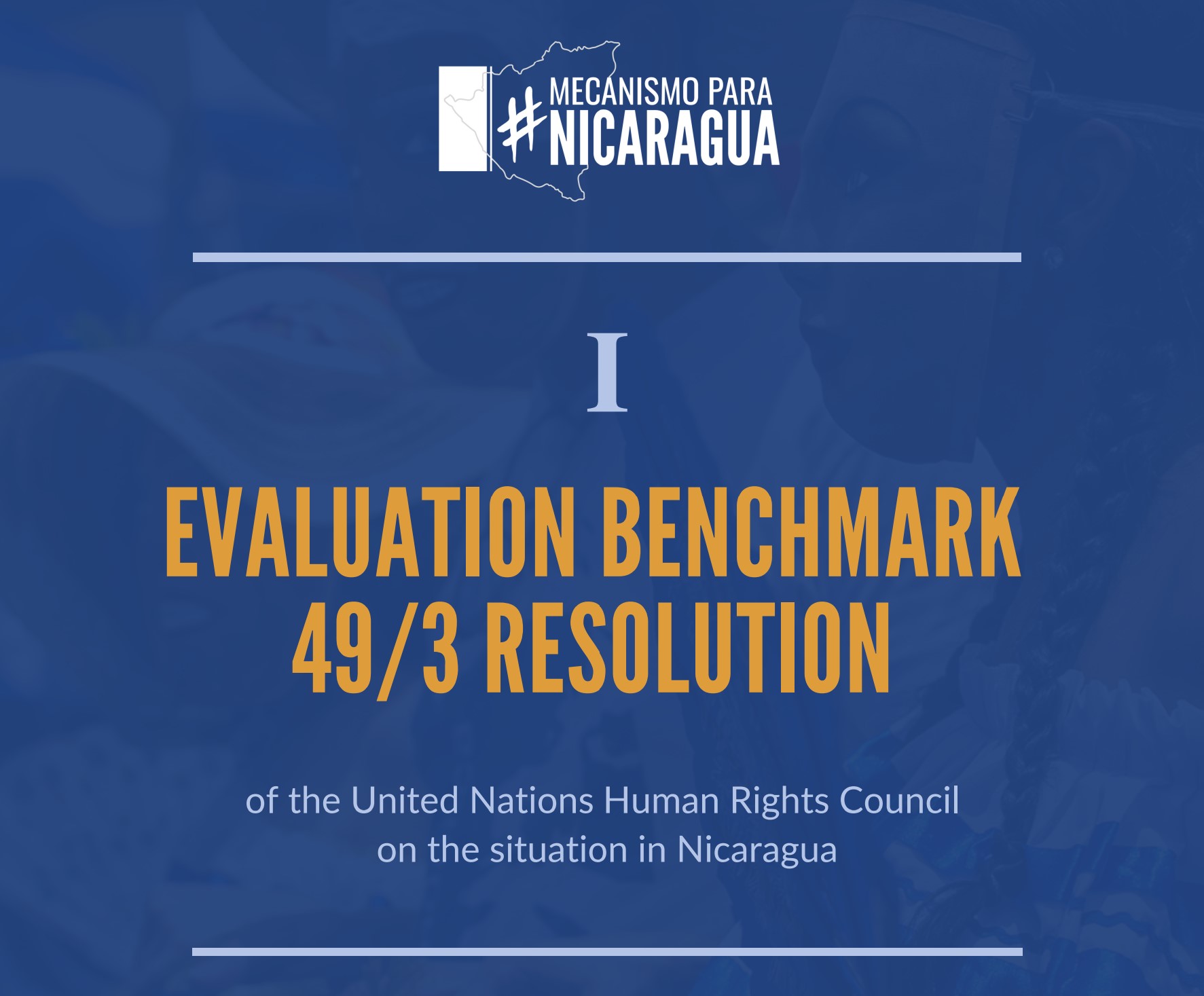What do we want?
Human rights defenders work to make a fairer, more sustainable and just world by promoting and protecting human rights. In considering human rights situations around the world, the UN system is profoundly dependent on the information and testimonies provided by human rights defenders who document situations, abuses and violations. They are essential voices from our communities that need to be part of the conversations at the United Nations.
This important role is a key reason why some States seek to systematically prevent defenders from engaging with UN bodies and mechanisms, and to reprimand and punish those who do engage. They do so through repressive tactics that range from administrative hurdles and travel restrictions to intimidation, imprisonment and killings.
This is not right. Everyone has the right to access and safely communicate with the UN.
We want human rights defenders to have a ‘seat at the UN table’ and be able to effectively and safely engage with UN human rights mechanisms and bodies. We want States and non-State actors to refrain from intimidating or carrying out reprisals against defenders when they engage or seek to engage with the UN. States must take a clear and public position at the UN against intimidation and reprisals and hold their peers to account. We therefore also call on governments States to publicly condemn reprisals and intimidation against those who engage with the UN, and raise specific cases of victims. When intimidation and reprisals do occur, we want the UN to effectively address these cases, support the victims and push for accountability and redress.
